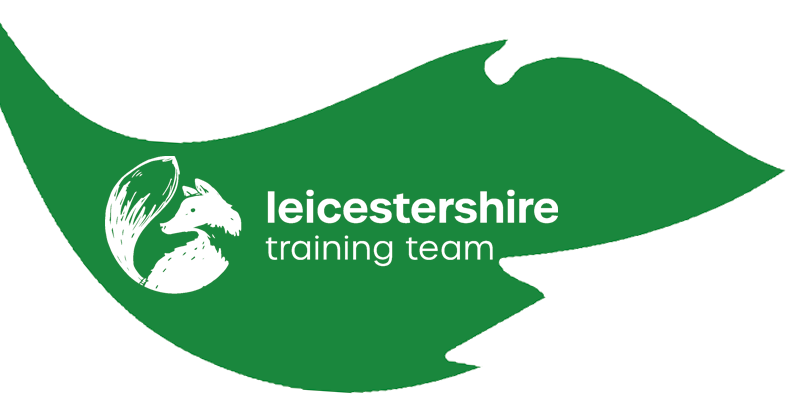How To Pass the OSCE Test For Nursing
Posted on 30th September 2021
The NMC (Nursing & Midwifery Council) have stated nurses need to pass two legacy tests in order to register as a nurse in the UK. The OSCE is the practical test looking at communication, holistic care and clinical skills.
This article will cover (click on the sentence to head straight there):
How should I prepare for the OSCE test?
The minimum guidance for preparation for the OSCE is 14 days.
Ideally you will practice both your knowledge base and your clinical skills as both will be needed during the OSCE test. There are plenty of resources offered by all the three universities who do the OSCE test. If you're not sure where these are, follow the link: OSCE Test SItes
You can always enquire to see if training companies are able to support and help you with preparing for your OSCE test. Master nursing skills for the practical exam and ensure competence. Book your OSCE slot today for success!
How to gain marks in a OSCE Test?
The invigilator will mark you throughout the station and award marks for the following:
Clearly explaining care, diagnosis, investigations and/or treatments & interventions
Involving the patient in decision-making
Communicating with relatives and health care professionals
Seeking and obtaining informed consent
Active listening
Dealing appropriately with an anxious patient or anxious relatives
Giving clear instructions on discharge
Giving advice on lifestyle, health promotion or risk factors
Demonstrating compassion and care during communication
Clear documentation which meets current NMC guidelines
Professional behaviour
Overall each station and test is designed to check that you are maintaining patient safety and the protection of the public. To help gain marks, you should ensure you demonstrate the 6Cs of nursing, Care, Compassion, Courage, Commitment, Competence and Communication. Prepare for your Nurse OSCE with focused practice.
What are common mistakes and errors during a OSCE test?
With so much on the line, its a great idea to avoid all of these errors.
Please do NOT
Only speak to the invigilator. Instead speak to the patient and verbalise what you are doing.
Skip reading the instructions or the scenario details. Instead read them carefully and formulate a plan prior to doing anything else. In the scenarios, people may have allergies which you need to be aware of.
Run overtime! Its super important that you stay within the time limit as everything that you do outside that limit will not be scored.
Not washing your hands. Its critical to wash your hands prior to touching anything. Its part of the 5 points of hand hygiene. You can introduce yourself and greet the patient and inform them you're going to wash you hands prior to doing/touching anything.
Neglect to check the patients identification. This is a must! You need to make sure you're dealing with the correct person so always check their identification, but ensure you wash your hands first.
Ignore consent or safety. Both are major fails and must not be forgot if you are to pass the OSCE assessment. Ensure you always gain consent prior to each intervention and always ensure its safe to do an intervention.
Use poor handwriting. Its very important to not only fully complete your documentation but to ensure the invigilator can read it.
Do everything for the patient. When planning for the patient at the Planning Station, include how the person can carryout self care to promote independence.
Get glammed up! It might be tempting to look nice for the big day, however imagine as if you're going on shift. Ensure your hair is tided back, no nail polish or jewellery is on and you wear short sleeved top and flat shoes.
Go on an empty stomach. Once you're in the etst area you are not allowed to come out for food or drink. Water will be supplied, however food will not be. Its your responsibility to ensure you've eaten prior to entering the test area.
Be a chatterbox with other. You must only speak to the staff or the invigilator, not to anyone else. You can be disqualified and your OSCE test cancelled if you are caught communicating with other candidates.
When do I get my OSCE test results?
Yes, its a nerve racking time waiting for the results! Most of the test sites will be able to give the NMC your result within two days, however you'll need to wait around 5 working days before the NMC let you know the result. You'll receive your result via email, so double check your spam box!
Unfortunately the universities aren't able to inform you if you've passed or not . They are also not allowed to provide any feedback to you on the day. You can ask, but they won't tell!
You're result will either be:
Pass: meaning you passed all the stations
Partial Fail (APIE): meaning you failed one or more of the four APIE stations but passed the skill stations
Partial Fail (Skills): meaning you failed one or more of the two skills stations but passed the four APIE stations
Full Fail (1st Attempt): means you failed both one or more of the two skills stations and one or more of the four APIE stations.
Full Fail (Re-sit): means you failed both one or more of the two skills stations and one or more of the four APIE stations during your re-sit attempt.
Leicestershire Training Team is a professional nursing assessment provider that specialises in helping nurses prepare for their OSCE (Objective Structured Clinical Examination). The OSCE assesses a nurse's knowledge, behaviours and evidence based practice. Our team of highly experienced professionals can provide support and advice on the implementation and evaluation of the OSCE test to ensure you are fully prepared for the exam. We offer a range of services including information booklets, guidance on how to pass the OSCE test and reduced resit fees for those needing extra support. We can also provide general nursing assessment planning and advice on stations to test skills such as observation, communication, problem solving and more. Our team is committed to helping nurses prepare for their OSCE exam in a safe and supportive environment. We hope this has been helpful and we wish you all the best with your OSCE test!
Share this post:



